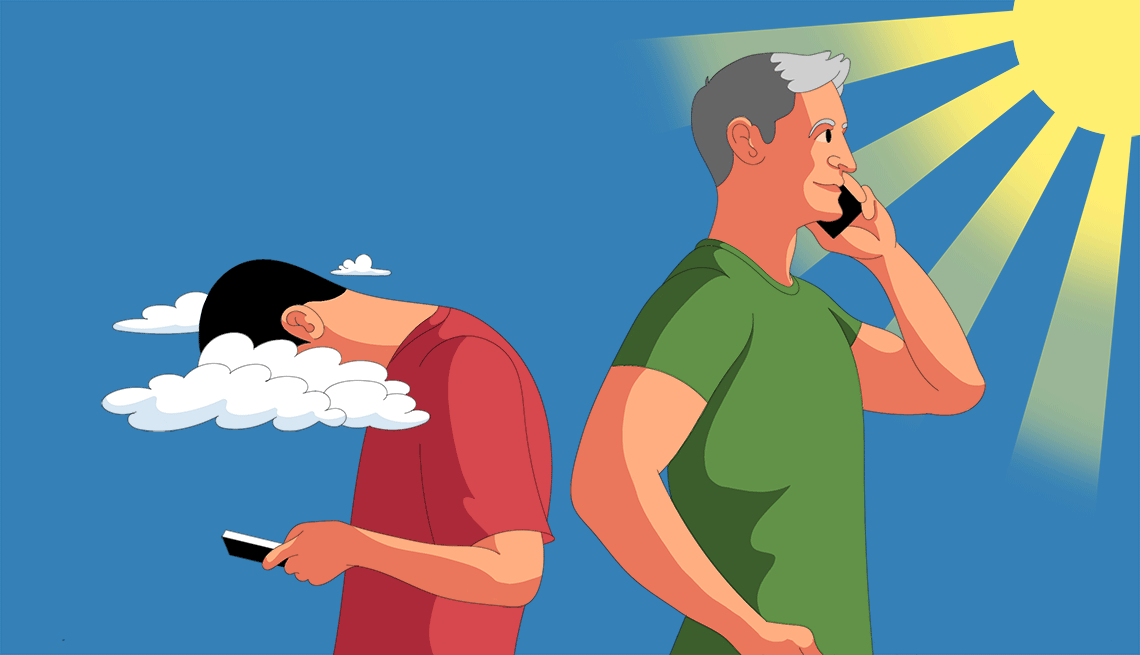
Spending Too Much Time Scrolling? Cutting Back Benefits Well-Being
- Select a language for the TTS:
- UK English Female
- UK English Male
- US English Female
- US English Male
- Australian Female
- Australian Male
- Language selected: (auto detect) - EN
Play all audios:
Liam Eisenberg Facebook Twitter LinkedIn
You’re not alone if you have a complicated relationship with your smartphone. We may depend on them to connect with others, find information and map our way around town, but many of us use
them more than we’d like. In a 2022 Gallup poll, 47 percent of people 50 to 64 and 30 percent of those 65 and up said they spend too much time on their smartphones.
Stepping away can be hard, but a new study suggests making the effort may be worth it. People who were told to block the internet from their smartphones for two weeks reported better mental
health and well-being. And by one standard test their attention spans improved as if they’d subtracted a decade from their age, researchers reported in the journal PNAS Nexus.
Why the improvements in well-being? The researchers say participants spent more time socializing in person, exercising and being in nature, all of which benefit mental and physical health.
The experiment included 467 adults, ages 18-74, who were told to use an app that blocked all mobile internet access for two weeks (and tracked how well participants complied). Users could
send and receive calls and texts but couldn’t access email or social media, read news apps or browse the internet. “Basically, this app turns people’s smartphones into flip phones,” says
study author Noah Castelo, an assistant professor of marketing at Alberta School of Business in Edmonton.
Study participants were randomly assigned to one of two groups. One group began the blocking experiment immediately, while the other acted as the control group for two weeks, able to use
their phones as normal. After two weeks, the groups switched.
After two weeks of the experiment, about 70 percent of participants reported better mental health and 73 percent reported improved well-being. At the beginning and end of the study,
participants took a standard computer-based test that assessed how well they sustained visual attention to a challenging task. “Researchers have found that after the age of 40, people’s
performance on this task starts to decline a little bit every year,” Castelo says. After the smartphone blocking, participants improved on the test as if they’d reversed 10 years of
age-related decline. More than 90 percent of participants improved on at least one of the key outcomes: mental health, well-being and attention.